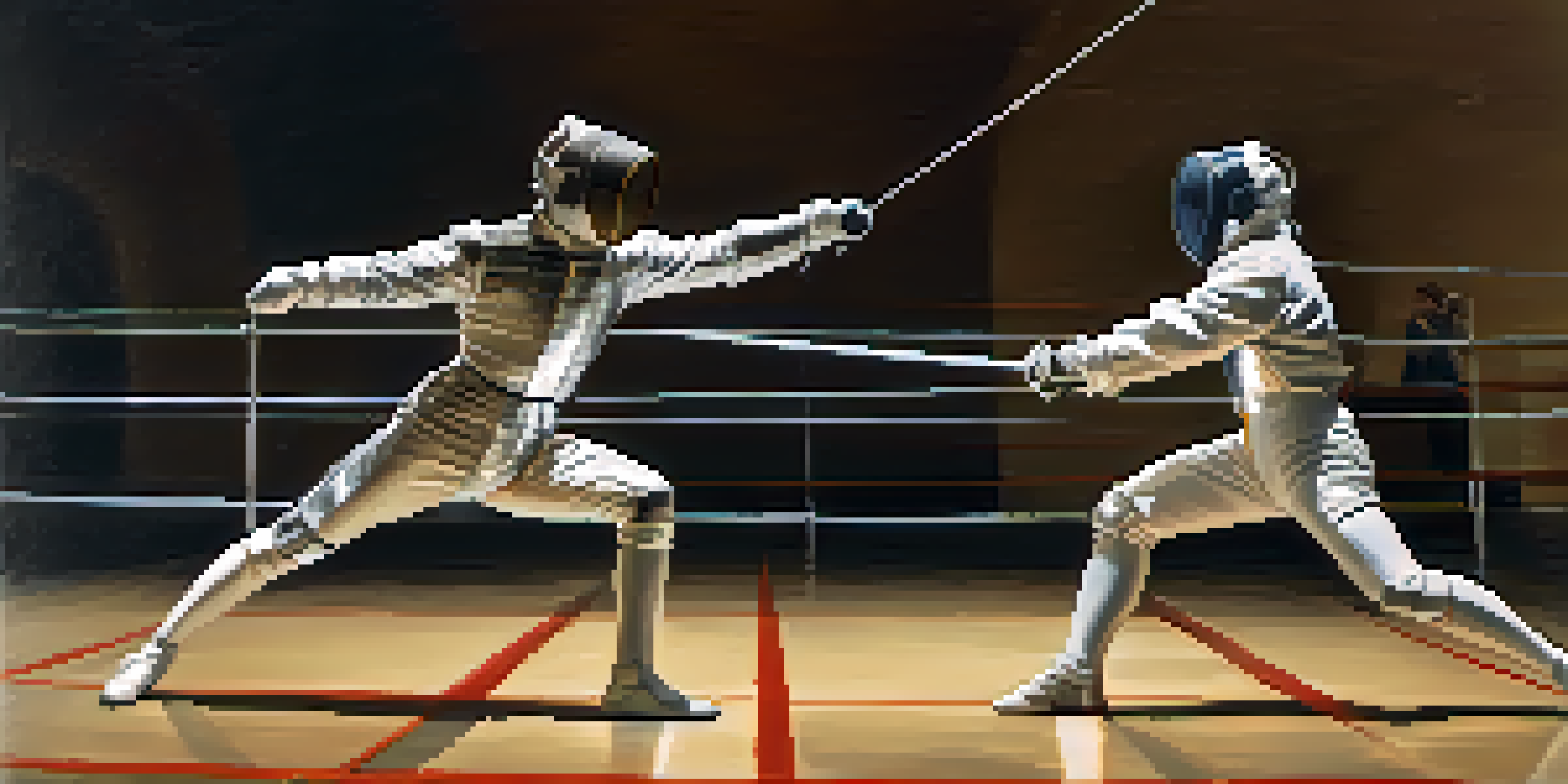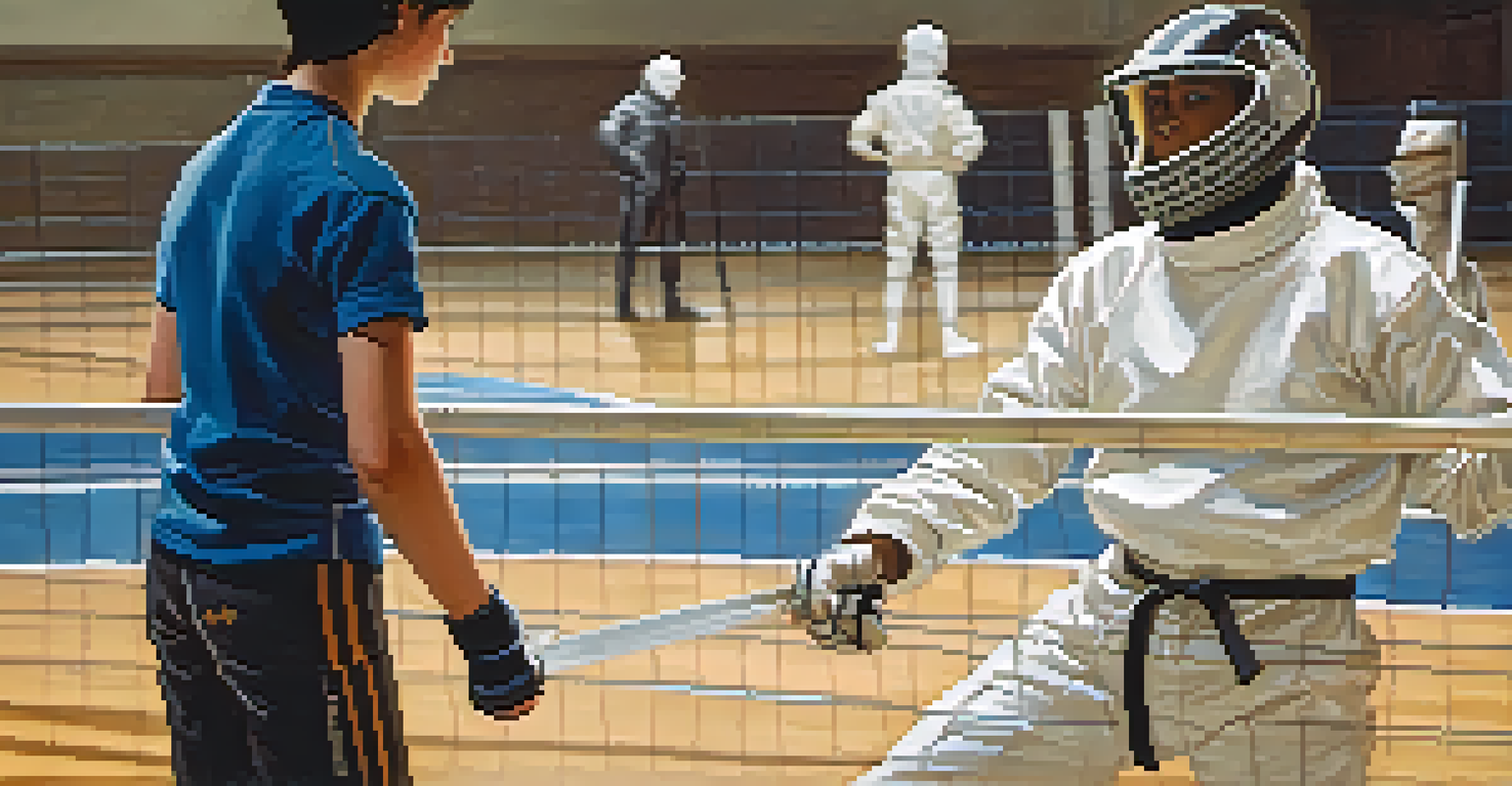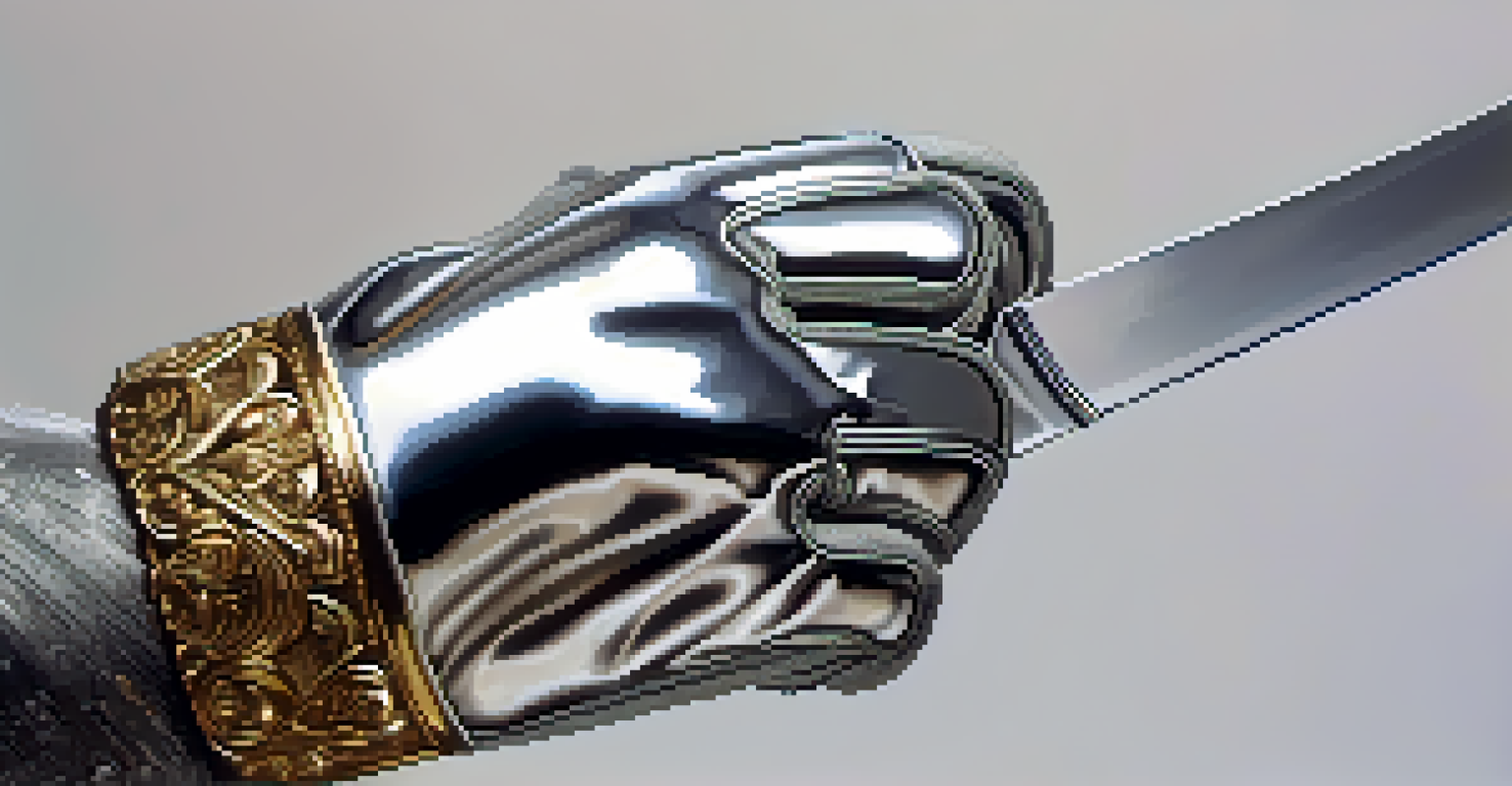The Role of Coaching in Fencing: Finding the Right Mentor

Understanding the Importance of Coaching in Fencing
Coaching plays a pivotal role in the sport of fencing, serving as the backbone for an athlete's development. Just like a compass guides a traveler, a good coach directs fencers on their path, helping them refine their techniques and strategies. They provide not only technical skills but also emotional support, which is crucial during competitions.
A good coach can change a game. A great coach can change a life.
A skilled coach understands the unique strengths and weaknesses of each fencer, tailoring training sessions to address individual needs. This personalized approach fosters growth and confidence, allowing fencers to thrive. The relationship between a fencer and coach can often resemble that of a mentor and mentee, deeply influencing a fencer's journey.
Ultimately, a coach's role extends beyond just skill instruction; they instill discipline, perseverance, and a love for the sport. Their guidance can significantly impact a fencer's performance, mindset, and overall experience in the sport.
Qualities to Look for in a Fencing Coach
Finding the right coach can feel like searching for a needle in a haystack, but knowing what to look for can simplify the process. Key qualities include experience in the sport and a proven track record of developing fencers at various levels. A coach who has competed or coached at higher levels can offer invaluable insights that can elevate a fencer's training.

Equally important is the coach's communication style. A great coach should be able to convey complex strategies in a way that is easy to understand, adapting their teaching methods to fit the learning style of the individual fencer. This flexibility can make a significant difference in a fencer's ability to grasp new techniques.
Coaching Shapes Fencer Development
A strong coach plays a crucial role in refining a fencer's skills, offering personalized training and emotional support.
Finally, emotional support and encouragement can be game-changers. A coach who believes in their fencer and celebrates their achievements, no matter how small, can boost confidence and morale, leading to better performance on and off the strip.
The Mentor-Mentee Dynamic in Fencing
The relationship between a coach and a fencer often mirrors that of a mentor and mentee, fostering growth and development. This dynamic is built on trust, respect, and open communication, allowing fencers to feel comfortable discussing their challenges and aspirations. When a fencer trusts their coach, they are more likely to embrace feedback and push their limits.
Coaching is unlocking a person's potential to maximize their growth.
Mentorship in fencing goes beyond mere instruction; it involves inspiring and motivating fencers to reach their full potential. A good coach shares their own experiences, providing relatable anecdotes that resonate with fencers. This sharing of personal stories can help fencers navigate their own journeys, offering guidance during tough times.
Additionally, a strong mentor-mentee bond can lead to lifelong friendships, creating a supportive environment that extends beyond training sessions. This emotional connection can be incredibly beneficial, especially during high-pressure situations like competitions.
The Impact of Coaching Styles on Fencer Development
Coaching styles can significantly influence the development of fencers, shaping their approach to the sport. For example, an authoritarian coach may focus on strict discipline and technique, while a more collaborative coach encourages open dialogue and creativity. Each style has its merits, but the best coaches often blend these approaches to suit their fencers' needs.
A supportive coaching style can foster a positive training environment, where fencers feel valued and motivated to push their boundaries. This approach can lead to enhanced skills and a deeper love for fencing. On the other hand, a more structured style can instill discipline and focus, essential traits for competitive success.
Building Trust is Essential
The mentor-mentee dynamic fosters growth through trust, respect, and open communication between coaches and fencers.
Understanding the differences in coaching styles can help fencers identify what works best for them. By actively seeking a coach whose style aligns with their personality and goals, fencers can maximize their growth and enjoyment in the sport.
Building a Strong Coach-Fencer Relationship
A strong coach-fencer relationship is crucial for maximizing potential and performance. Open communication is key; fencers should feel comfortable sharing their concerns and aspirations with their coaches. This transparency helps coaches tailor their approach, ensuring that training is both effective and enjoyable.
Additionally, mutual respect is essential in this relationship. Fencers should respect their coach's expertise and experience, while coaches should value their fencer's input and individuality. This two-way respect fosters a positive environment that encourages growth and development.
Moreover, regular feedback sessions can strengthen this bond. Coaches should provide constructive criticism, while fencers can share their thoughts on training sessions. This ongoing dialogue helps both parties understand each other's needs and expectations, ultimately leading to a more fruitful partnership.
The Role of Feedback in Coaching and Fencer Growth
Feedback is a cornerstone of effective coaching, guiding fencers toward improvement. Constructive criticism helps identify areas for growth, while positive reinforcement boosts confidence and motivation. A skilled coach knows how to balance these aspects, ensuring that fencers remain focused and inspired.
Fencers should view feedback as an opportunity for growth rather than criticism. Embracing feedback can lead to significant improvements in technique and performance. The best fencers are those who actively seek out and apply feedback, demonstrating a commitment to their development.
Feedback Fuels Continuous Growth
Regular feedback from coaches helps fencers improve their techniques and stay motivated, creating a culture of continuous development.
Moreover, regular feedback sessions can create a culture of continuous improvement. Coaches and fencers can revisit goals, assess progress, and adjust training plans as needed. This ongoing dialogue not only enhances skills but also strengthens the coach-fencer relationship, fostering a supportive training environment.
Finding the Right Coach: Tips and Considerations
Finding the right coach can be a journey in itself, and it’s essential to approach it thoughtfully. Start by researching local fencing clubs and programs, asking for recommendations from fellow fencers or parents. It's important to observe potential coaches in action, noting their coaching style and how they interact with their students.
Once you have a shortlist, consider setting up introductory meetings or trial sessions. This will allow you to gauge compatibility and communication styles, ensuring that both you and the coach align in your goals and expectations. Don't hesitate to ask questions about their coaching philosophy and experience.

Finally, trust your instincts. A coach should not only be knowledgeable but also make you feel comfortable and motivated. A great coach-fencer relationship can significantly enhance your fencing journey, so take the time to find someone who resonates with you personally.